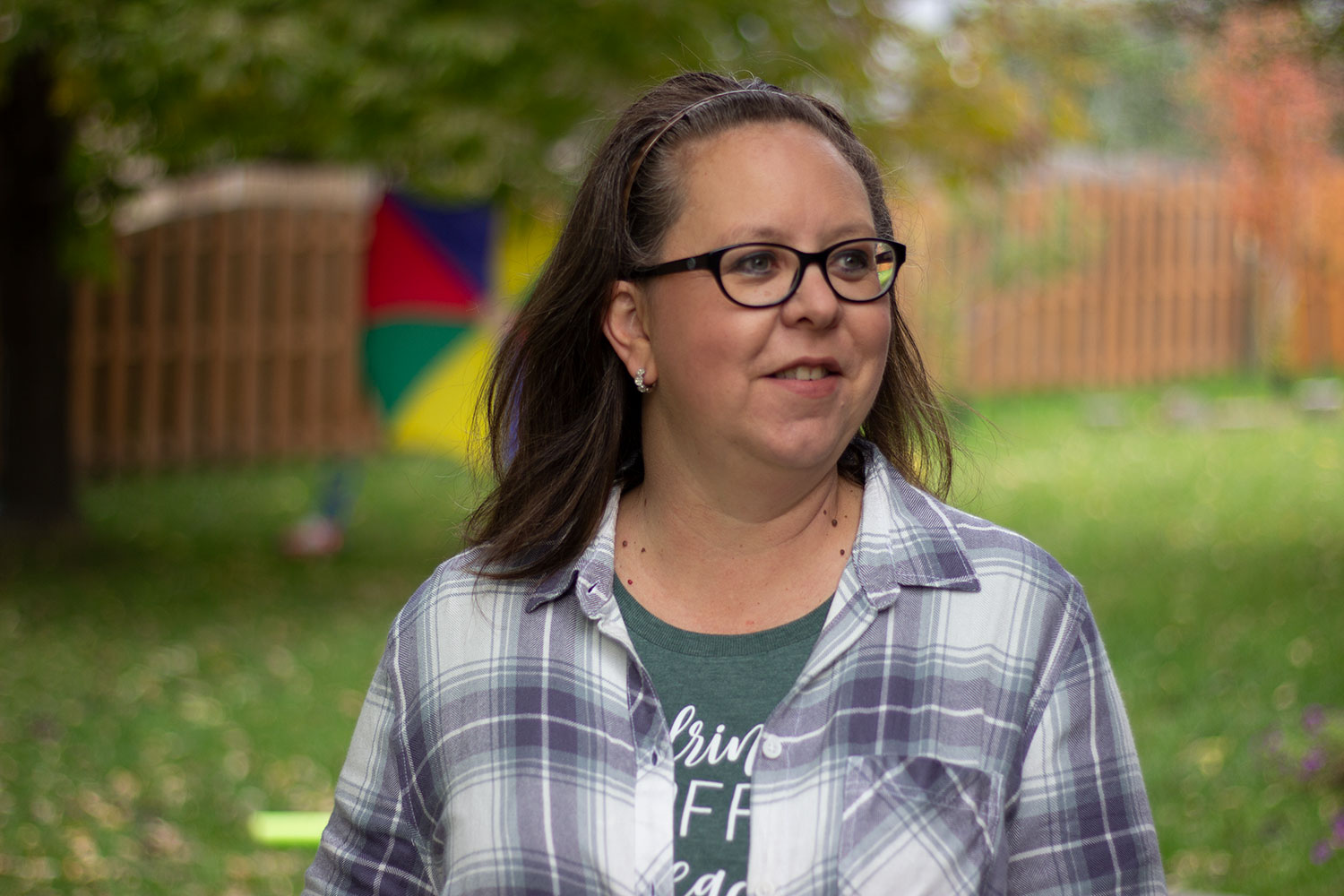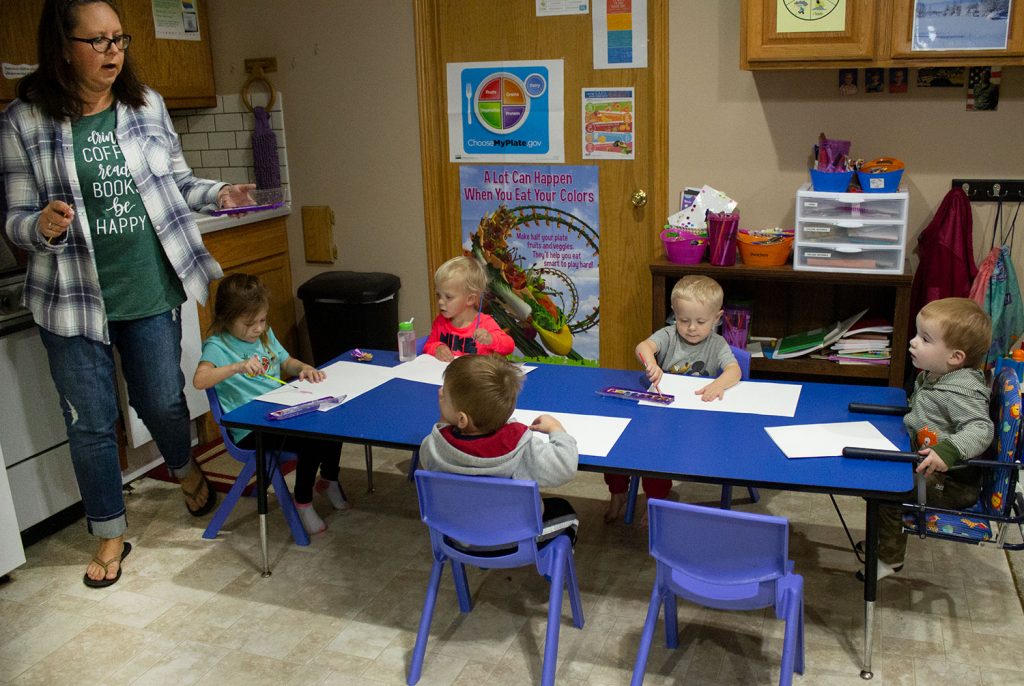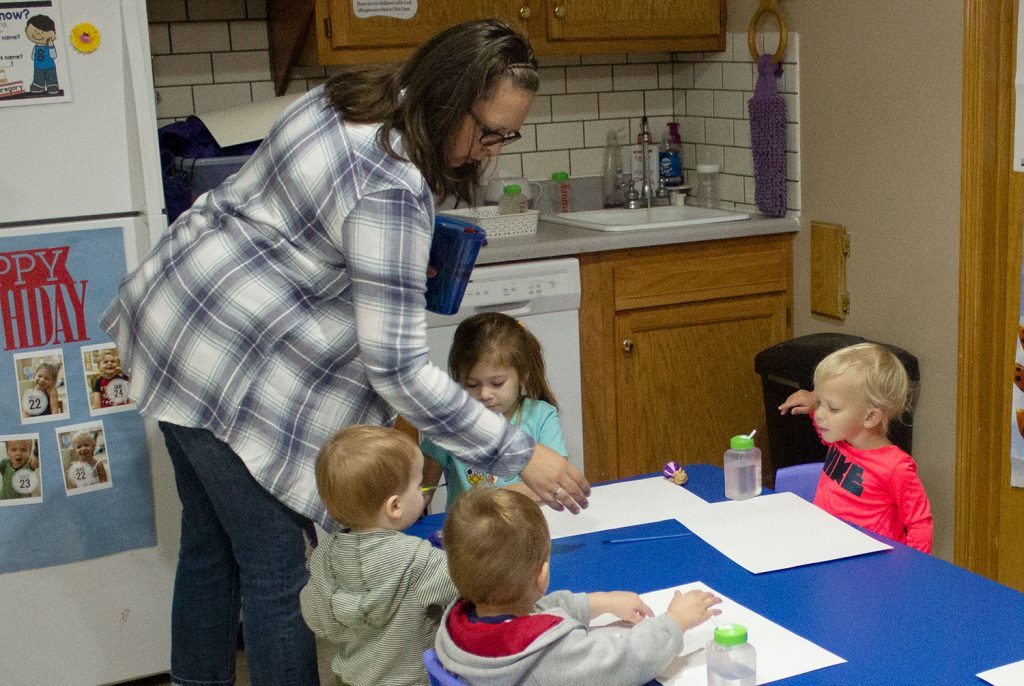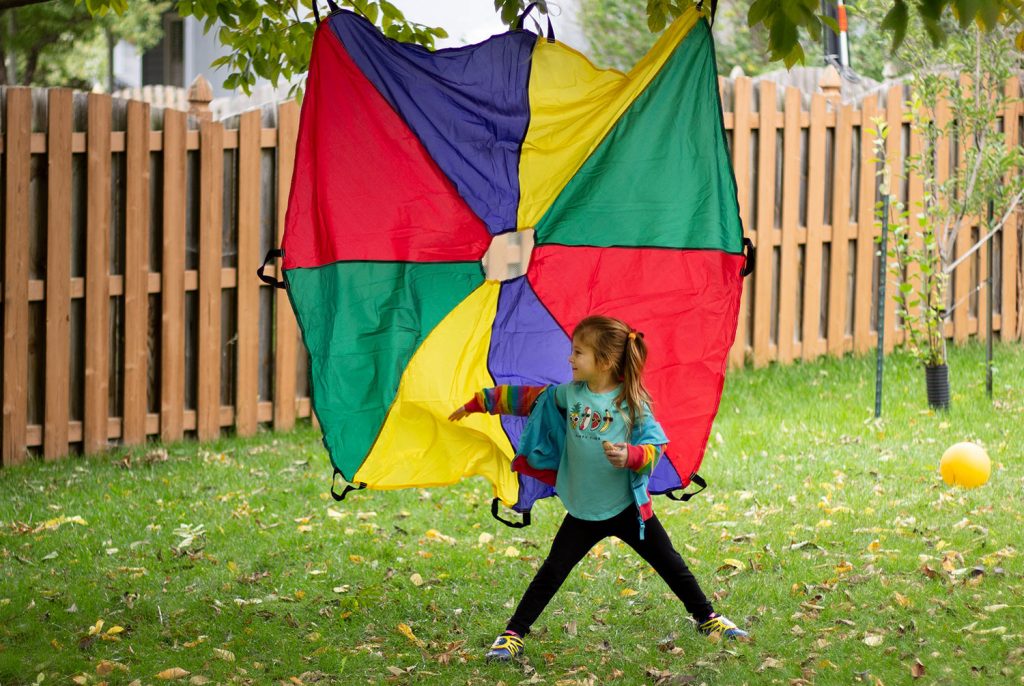
Step Up To Quality Stories
An Affirmation of Quality
Teaching and caring for children is in Kim Chase’s blood. Her mom was a teacher, and her aunt was an in-home child care provider.
When Kim was in college, she would do her laundry at her aunt’s house, and sometimes fill in for her aunt and care for the kids.
“When I had my first baby, I knew exactly what I could do to stay home with him,” she said.
That was 23 years ago. Since then, she and her five kids have seen dozens of babies grow up in the basement of their houses over the years.

“The joy of seeing kids grow and develop is indescribable,” she said. “All the smiles and hugs you get throughout the day, the relationships you build with families – it’s the best job.”
She currently has seven kids in her care, from ages eight months to four years old.
When Step Up to Quality formed in Nebraska in 2014, Kim was one of the first to know. She was involved in a focus group meeting and was immediately on board with the program.
“Anything that promotes quality is something I want to participate in,” she said.
Her in-home child care in Papillion, Chase’s Child Care Corner, was one of the first 20 programs enrolled in Step Up to Quality.

“It’s easy to enroll. The online enrollment and orientation make it super simple,” she said.
The best part of Step Up to Quality for Kim though, was her coach.
“I loved having a coach be a part of the program,” Kim said. “It was nice having an outside set of eyes here. She helped me realize that I was on the right path.”
Kim’s advice for fellow child care providers: take the Step Up to Quality process piece by piece and don’t be intimidated by the rating scales like FCCERS (for family child care providers) and ECERS (for child care centers). There’s some give and take where you can choose to implement the recommended changes, or not.

“You do become aware of areas where you can enhance what you’re doing to improve the quality of your care,” she said. “But overall, it helps you grow, and it validates a lot of what you’re doing.”
It all comes down to the kids and the importance of high-quality care.
“We’re in charge of so much of their foundational years,” she said. “Providing quality care helps kids grow and develop and be ready for school.”
